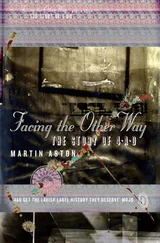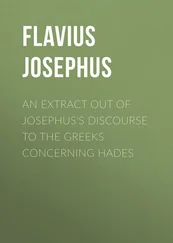“Cantrip,” I said, “were you, when at Cambridge, a frequent guest at these gatherings?”
“Oh, rather,” said Cantrip.
My heart bled for Grocklehurst.
“And is Camilla,” I asked “a member of this élite?”
“Well, not really. Bright but not brilliant, you know — that’s what Grockles thinks, anyway. But she wants to come to the Bar, and she’s frightfully keen and hardworking — always asking for extra reading lists and spent the last summer Vac working in a lawyer’s office to get experience. You wouldn’t catch me doing that sort of thing if I was due to get my paws on five million quid — but there’s no accounting for tastes. She’s one of those all round birds, though — plays tennis for her College and might get her blue for swimming.”
“A paragon,” said Selena, “of the Victorian virtues. Mens sana in corpore sano and no sex life. I wonder if she takes cold baths.”
“We may be about to learn,” said Ragwort, “that under the influence of Cantrip’s sophisticated charm her coldness melted like the snow in summer. I assume, Cantrip, that at this breakfast party you maintained the appearance of amorous pursuit?”
“Well, I had to, hadn’t I? Mind you, I don’t say I mightn’t have chatted her up a bit even if I hadn’t had to — she was looking quite fanciable. Anyway, I shovelled scrambled eggs down her in a worldly and sophisticated sort of way and it all went like a breeze. There was some fairly stiff competition from a chap from Trinity — fancied himself on account of being a baronet or something — but he never had a chance, because what she wanted to hear about was the inside story of life at the Bar. So in the end I took her off to lunch, leaving the Trinity chap standing at the post.”
“That,” I said, “was no doubt most gratifying. Did you manage to persuade her to talk about Deirdre at all?”
“Of course I did, or I wouldn’t be telling you about it, would I? I gave her a couple of martinis to soften her up, and then I said what rotten luck it was about Deirdre falling off the roof — you know, the manly sympathy bit. And she said pretty much the same as your Greek kid — you know, about Deirdre being a bit of pain and not much loss to anyone. Well, she didn’t put it like that — but the general picture was that Deirdre falling off the roof hadn’t exactly left an aching void in her life and she thought it’d be hypocritical to say it had. The way she saw it was that Deirdre’d always been miffed about not being the one who was going to get the loot, and the only way she could get her own back was by being fairly bloody-minded all the time — always whining and telling tales and so on. Well, that’s the way Camilla saw it. But then she went all stiff upper lip and said that Latin thing about mortuaries.”
“The phrase you have in mind,” said Ragwort, “is ‘de mortuis nil nisi bonum’ —that of the dead one should say only what is good.”
“That’s the one,” said Cantrip, impressed by his friend’s erudition. “She didn’t actually seem to be able to think of anything good to say about Deirdre, but she obviously thought it was a bit off to go on saying what a ghastly brat she’d been. So I kept on with the manly sympathy bit, but laying off the personal tragedy angle and putting more emphasis on the frightful shock aspect — you know, grimness of having to cope with the fuzz and the newspaper chaps and the Coroner and all that. And she went all stiff upper lip again, and said yes, it had been pretty grim, but specially grim for Aunt Dolly — that’s Dorothea.”
“Presumably,” I said, “because Dorothea was the last person to talk to Deirdre before she died.”
“Well, partly that. But mostly because of her husband — that’s the poet chap. The poet chap thought it was all his fault.”
Someone judged this a suitable moment to remind Cantrip of our empty cups and that it was his turn to buy coffee. I waited with some impatience to learn why Constantine Demetriou considered himself responsible for Deirdre’s death.
“Because of having this bust-up with Rupert. They were going on at each other all through lunch, the same as the Greek kid told you they were, and everyone else getting jolly fed up with them. But Camilla reckoned it was all the poet chap’s fault. The poet chap’s some kind of lefty, and Rupert can’t stand lefties at any price. So the poet chap shouldn’t have stirred things by talking about politics. That’s the way Camilla sees it.”
Leonidas blamed Camilla’s father, she blamed his — it was a pleasing instance of filial piety.
“So everyone else was trying to take no notice and concentrate on the Boat Race. But just as it got to the exciting bit and the boats came in sight from the balcony the poet chap suddenly went all huffy about something Rupert said, and said he was leaving at once and where was Dolly. So Cindy — that’s the ginger-haired bird — had to go and call Dolly down from the roof and Dolly came down and left Deirdre on her own there. So when Deirdre started leaning over to see the boats going under Barnes Bridge there wasn’t anyone there to hold on to her ankles. And that’s why the poet chap reckoned it was all his fault, because if he hadn’t lost his temper and insisted on leaving, Dolly would still have been up there to act as ankle-gripper.”
I reflected with admiration on the tormented subtleties of the artistic conscience. I was surprised, however, that the boy Leonidas had given me no hint of his father’s feelings.
“Shouldn’t think he knew about them,” said Cantrip. “I don’t mean the poet chap did the conscience-stricken bit there and then. But next day, when Camilla went round to Hampstead, she found Dolly all weepy and upset, and that’s when Dolly told her that the poet chap thought it was all his fault and she couldn’t persuade him it wasn’t and she didn’t know what to do. So I don’t suppose he’d done the conscience-stricken bit to anyone except Dolly.” Cantrip, who had contrived to combine his narrative with the consumption of a doughnut, now licked his fingers and looked regretfully at his empty plate. “Well, that’s as far as I got, really. I thought Camilla would think it a bit funny if I asked her exactly where everyone was standing and whether anyone happened to slope off to the loo — it’s not the sort of thing birds expect to be asked about when they’re being chatted up over lunch.”
Cantrip had done well, and I thought it right to say so. If he had failed, as it afterwards proved he had, to ask Camilla the one question which might even then have given me an inkling of the truth, he is hardly to be blamed: I freely confess that I myself might not have thought to ask it.
“Were arrangements made,” inquired Ragwort, “for a further meeting?”
“I said if she gave me a buzz next time she was in London I’d feed her the odd chip or two, and she seemed quite chuffed at the prospect. But it won’t be for two or three months — she’s going straight out to Corfu to stay with Dolly as soon as term’s over. She’s got a boat of her own out there, so she’s reckoning to spend most of her time sailing. That’s when she’s not swotting up on Equity and Succession and all that.”
A digression ensued: Selena was reminded that in some three weeks’ time she herself would be sailing in the same waters. She spoke a trifle defensively of the enterprise, for the courts would still be sitting: but Henry, it seemed, had so arranged her professional obligations over the past year as to disrupt at short notice her plans for Christmas, Easter and the present short Whitsun vacation, and she had at last rebelled. She had told Henry, kindly but firmly, that during the second fortnight in June the wheels of justice must roll on as best they could without her assistance: she would be sailing a small boat round the Ionian Islands in the company of her friend Sebastian Verity, out of reach of any form of long-distance communication which might demand her return to Lincoln’s Inn.
Читать дальше












